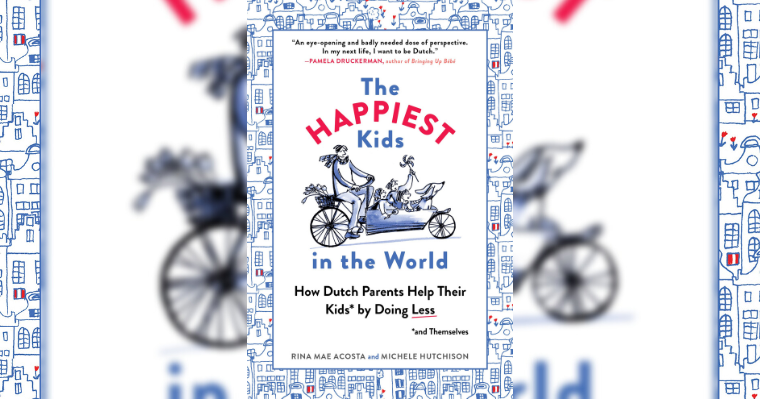The Happiest Kids in the World: How Dutch Parents Help Their Kids* by Doing Less *and Themselves by Rina Mae Acosta and Michele Hutchison
It seems that the happiest kids aren’t from North America. We should be concerned about the levels of anxiety being reported these days here. Perhaps we can learn from how things are done in other parts of the world.
Here is a passage from this book that speaks volumes . . .
“Dutch society has fought for and achieved an enviable work-life balance. . . the Dutch work on average twenty-nine hours a week, dedicate at least on day a week to spending time with their children, and pencil in time for themselves, too.”
In our culture, being a workaholic is celebrated. Parents work long days and sometimes even take their work home with them. Children get the short end of the stick. They want time with us and often, we are hard-pressed to give it. That is something that we should work to change.
I also like how grades aren’t as much of a concern for the Dutch as they are for us. Here, a GPA seems to be the most important thing. Over there, they measure things a little differently.
“The various assessment categories speak volumes. There’s General Behavior: The ideal child is independent, calm, modest, self-confident, spontaneous and responsible. There is Care of the Environment, which takes into consideration whether their work is neat and their desk clean and tidy. Relationship with the Teacher is another category: The ideal pupil is helpful, curious, polite, attentive and open to being corrected when wrong. Running parallel to this is Relationship with Other Children: Kids are encouraged to be cooperative, considerate towards others, resilient and good at listening. Finally, the category Attitude to Work assesses the following attributes: standards, level of perseverance, concentration, ability to work independently , listening during lessons, motivation, and how quickly your child works.”
Here’s a passage from the article “The Decline of Play and Rise in Children’s Mental Disorders” by Peter Gray that the author quoted in this book. . .
“In school , children learn quickly that their own choices if activities and their own judgments of competence don’t count: what matters are the teachers’ choices and judgments. Teachers are not entirely predictable. You may study hard and still get a poor grade, because you didn’t figure out just exactly what the teacher wanted you to study pr guess correctly what questions he or she would ask. The goal in class, in the minds of the great majority of students, is not competence but good grades.”
And here’s a closing thought that I whole-heartedly agree with.
“Happiness in children is allowing them the time and freedom for hobbies, without feeling that anything less than a gold medal counts as failure. Children with talent and passion are likely to become better achievers anyway.”

